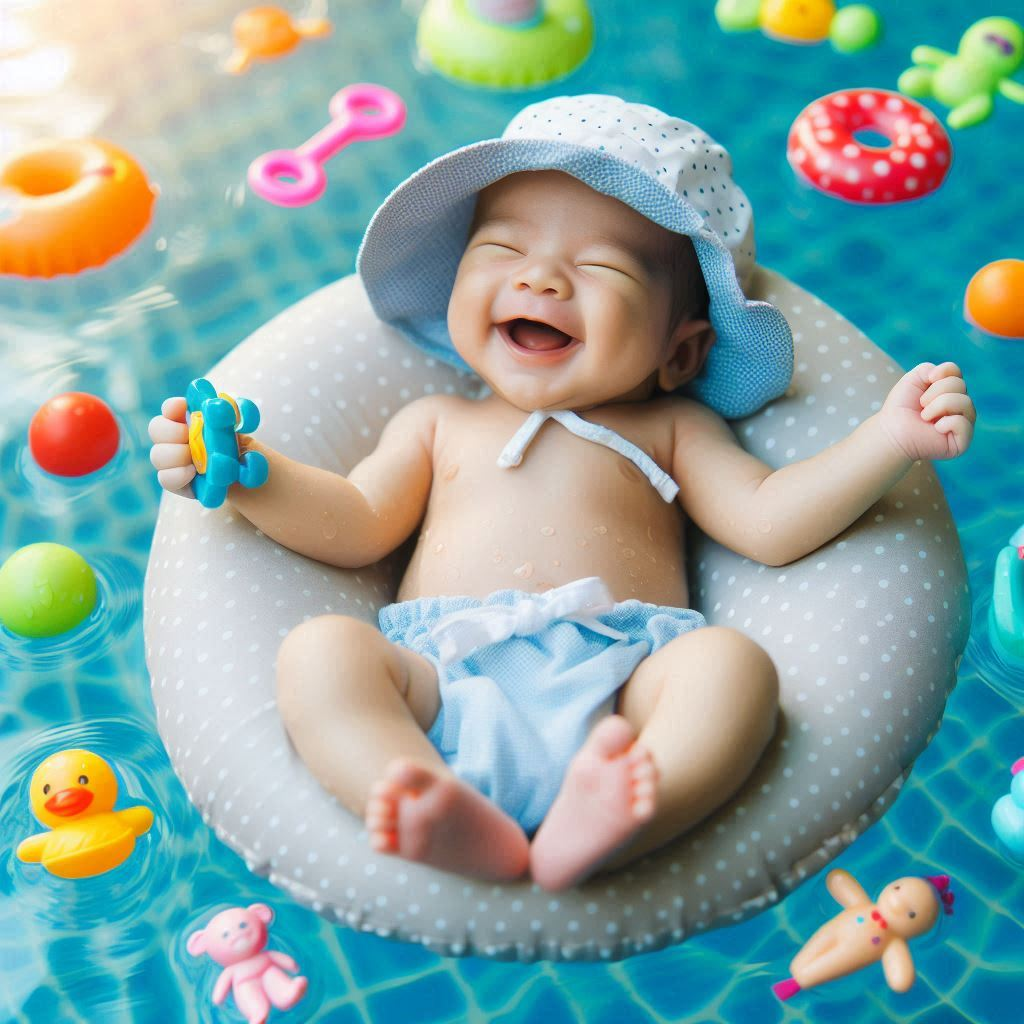Can Infants Breathe Underwater?
As a parent, you might have wondered about your baby’s ability to handle water. It’s a question that often comes up when thinking about bath time, swimming lessons, or even just splashing around in a kiddie pool. Let’s dive into this topic and explore what’s really going on when infants are underwater.
Quick Answer
No, infants cannot breathe underwater. However, they do have certain reflexes that can make it seem like they’re comfortable in water for short periods.
The Amazing World of Baby Reflexes
Babies are born with some pretty cool tricks up their tiny sleeves. These natural reflexes help them survive and adapt to their new world outside the womb. When it comes to water, two reflexes stand out:
The Dive Reflex: Nature’s Little Life Preserver
Imagine this: you gently lower your baby into water, and suddenly, as if by magic, they hold their breath and open their eyes. This is the dive reflex in action. It’s like a built-in safety mechanism that kicks in when a baby’s face touches water.
This reflex is strongest in newborns and usually starts to fade around 6 months old. It’s pretty neat, right? But remember, it’s not foolproof and doesn’t mean babies can breathe underwater or stay submerged safely for long periods.
The Swimming Reflex: Baby’s First Freestyle
Here’s another cool trick babies have: when you put them on their tummy in water, they might start moving their arms and legs in a swimming-like motion. It’s almost as if they instinctively know what to do in water!
Like the dive reflex, this swimming reflex is most noticeable in young babies and usually disappears around 6 months of age. It’s nature’s way of giving babies a head start in water, but it doesn’t mean they can actually swim or stay safe in water on their own.
So, Can Babies Really Breathe Underwater?
Despite these impressive reflexes, the answer is a clear no. Babies cannot breathe underwater. Their lungs are designed to breathe air, not water. The dive reflex helps them hold their breath briefly, but it doesn’t give them gills!
Here’s why:
- Babies’ lungs are small and still developing.
- Their airways are narrow, making it easy for water to block them.
- They can’t process oxygen from water like fish can.
So while those underwater baby photos might look magical, they’re carefully staged and potentially dangerous if not done by professionals.
Water Safety: Keeping Your Little Fish Safe
Now that we know babies can’t breathe underwater, let’s talk about keeping them safe around water. Water can be tons of fun for babies, but it also comes with risks we need to be aware of.
The Scary Truth About Drowning
Drowning is a real danger for young children. In fact, it’s one of the top causes of accidental death for kids under 5. What’s even more frightening is that it can happen quickly and quietly. A baby can drown in as little as 2 inches of water in just a few minutes.
Safety First: Tips to Keep Your Baby Safe Around Water
Don’t worry, though! With the right precautions, you can help your baby enjoy water safely. Here are some must-follow tips:
- Always watch your baby around water. And we mean always. No quick trips to grab a towel or answer the phone.
- Use proper safety gear. When you’re near water, put your baby in a well-fitting life jacket approved by the U.S. Coast Guard.
- Learn CPR. Knowing what to do in an emergency can be a lifesaver.
- Empty water containers after use. This includes bathtubs, buckets, and even toilets.
- Put barriers around home pools. Fences, alarms, and locked gates can prevent accidents.
- Start swim lessons early. The American Academy of Pediatrics says it’s okay to start as young as 1 year old.
The Bright Side: Benefits of Baby Swimming
Now, don’t let all this safety talk scare you away from the water. When done safely, water activities can be great for babies! Here’s why:
- It’s great exercise. Moving in water helps babies develop their muscles and coordination.
- It can boost confidence. As babies get comfortable in water, they often become more self-assured.
- It’s a chance to bond. Splashing around with your baby can be a fun way to spend time together.
- It might help with sleep. Some parents find that water activities tire their babies out, leading to better naps and nighttime sleep.
A Splash of Personal Experience
Let me share a little story from my own experience as a parent. When my daughter Lily was about 8 months old, we decided to try a parent-baby swim class. I was nervous at first, imagining all the things that could go wrong.
But you know what? It turned out to be amazing. The instructor showed us how to safely support Lily in the water, and before long, she was giggling and splashing like a pro. She even did a few gentle “dips” underwater, coming up with a big smile each time.
That class taught me two important things:
- Babies can enjoy water much more than we might think.
- With the right precautions and guidance, water activities can be safe and fun for the whole family.
Now, at 3 years old, Lily loves the water and is already learning basic swimming skills. It all started with those early, safe experiences as a baby.
Wrapping It Up: The Bottom Line on Babies and Water
So, let’s sum up what we’ve learned:
- Babies cannot breathe underwater.
- They do have some cool water reflexes, but these don’t make them water-safe on their own.
- Water safety is super important for babies and young kids.
- With the right precautions, water activities can be fun and beneficial for babies.
Remember, every baby is different. Some might take to water like little ducks, while others might need more time to feel comfortable. The key is to be patient, stay safe, and make it fun!
What’s Next? Taking the Plunge
If you’re thinking about introducing your baby to water activities, here are some next steps you might consider:
- Talk to your pediatrician about when it’s safe to start water activities with your baby.
- Look for parent-baby swim classes in your area.
- Invest in proper safety gear, like a well-fitting infant life jacket.
- Start small – even splashing in a baby bathtub can be a great introduction to water play.
- Most importantly, always prioritize safety and have fun!
Remember, the goal is to help your baby feel comfortable and safe in water, not to create the next Olympic swimmer (though who knows, maybe you will!). Take it slow, stay safe, and enjoy these special moments with your little one.

Jessica Winter is a passionate parenting blogger with two years of experience guiding new and seasoned parents through the joys and challenges of raising babies. Her insightful posts blend personal anecdotes with expert advice to offer a warm and practical perspective on modern parenting.

